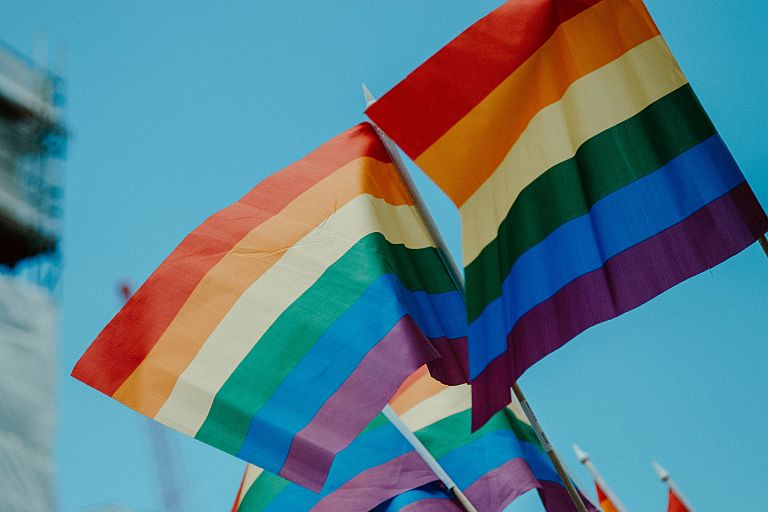LGBTQIA+ mental health
21/02/2024

Some of us identify as LGBTQIA+. This means we may be lesbian, gay, bisexual, transgender, queer, questioning, intersex, or asexual. Or we may define our gender and sexuality in other ways. Stonewall’s glossary lists many more terms.
Anyone can experience a mental health problem. But those of us who identify as LGBTQIA+ might be more likely to develop problems like (links to further information on the Mind website):
- low self-esteem
- depression
- anxiety, including social anxiety
- eating problems
- misusing drugs and alcohol
- self-harm
- suicidal feelings
- other mental health problems.
Being LGBTQIA+ does not cause these problems. The reasons why those of us with LGBTQIA+ identities might get them are very complicated. But it is most likely to do with facing things like (links to further information on the Mind website):
- homophobia, bi-phobia and transphobia
- stigma and discrimination
- difficult experiences of coming out
- social isolation, exclusion and rejection
It’s important to remember that embracing your LGBTQIA+ identity can also have a positive impact on your wellbeing. It might mean you have:
- increased confidence
- improved relationships with your friends and family
- a sense of community and belonging
- the freedom of self-expression and self-acceptance
- increased resilience
Other identities and challenges
We’re using ‘LGBTQIA+’ as an umbrella term. But we know that LGBTQIA+ people do not exist as one group. Everyone is different. Our identities are a complicated mix of factors, including:
- age
- ethnicity
- religion
- cultural background
- socio-economic background
- gender identity and gender expression
- sexuality
- physical ability
- many other characteristics.
You might face many challenges in your life that other LGBTQIA+ people don’t face, or even understand. This might include many other kinds of discrimination, social exclusion or social disadvantage.
This can make you even more likely to develop problems with your mental health, and make it even harder to get help.
“I decided to come out as bisexual to my family and friends, one by one, which really helped me grow in my confidence. Things are getting better with my mental health too.”
What help and support is available?
It’s important to remember that you deserve support and respect, whatever your identity or background. And you have legal rights to access healthcare without discrimination.
Mind’s page on LGBTQIA+ mental health support covers lots of options. This includes tips on self-care, seeking help and specialist LGBTQIA+ services.
There are lots of LGBTQIA+ organisations that are based within Greater Manchester, as well as a lot of activities and resources.
Mind’s page of useful contacts also lists many more places you could turn to for advice and support.
